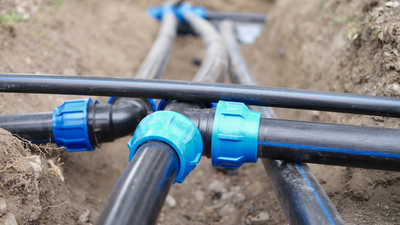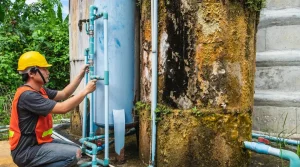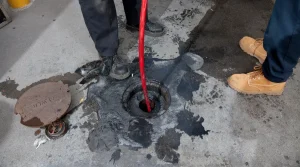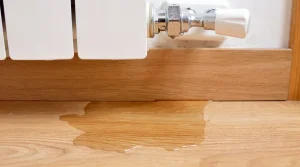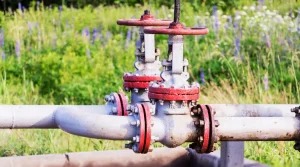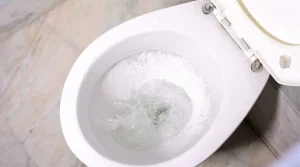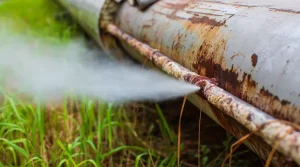Key Takeaway:
- Maintaining a clean plumbing system is crucial for a healthy and comfortable home. Regular plumbing upkeep prevents contamination, bacterial growth, and appliance damage, ensuring safe water quality and reducing energy costs.
- It also extends the lifespan of appliances, enhances water pressure, and improves overall household efficiency. Regular inspections and maintenance can save homeowners from costly repairs and contribute to water conservation and environmental sustainability.
Clean plumbing systems are the key to a safe, comfortable, and healthy home. Although it’s easy to forget, the cleanliness of the water flowing through our pipes affects many parts of our daily lives, from our health to how long our appliances last. Just like we take care of other parts of our homes, paying attention to the plumbing system is very important. This article explains why clean plumbing matters, what can happen if we ignore it, and the many benefits of taking care of it regularly.
Keeping your plumbing clean isn’t just another chore—it’s a way to invest in the health and well-being of everyone in your home. Let’s dive into why having clean water in our pipes is so important and how taking care of the plumbing can make your home a healthier and more stress-free place to live.
Why are clean plumbing systems so important?
When we think of plumbing, our minds often jump to the mechanics of keeping water flowing. However, it’s not just about making sure water moves freely; it’s about ensuring that the water we use is safe, free of contaminants, and readily available when needed. Clean plumbing systems are integral to achieving this.
Health Considerations: Clean Plumbing Systems
Clean plumbing systems directly impact the health of all residents. Water flowing through dirty, corroded, or unmaintained pipes can carry contaminants that pose significant health risks. Harmful microorganisms, like bacteria and viruses, can easily thrive in stagnant or dirty water pipes, leading to waterborne illnesses. Contaminated water can cause infections, gastrointestinal issues, and other health concerns.
Therefore, keeping plumbing systems clean ensures a steady supply of safe, high-quality water. Regular maintenance reduces the risk of corrosion, pipe damage, and the buildup of harmful bacteria. In the long term, this can prevent serious health issues for the home’s occupants.
Preventing Contamination
Plumbing systems act as barriers between water and potential contaminants. A clean and well-maintained system ensures water is not exposed to dangerous substances or heavy metals, or not exposed to dangerous substances or heavy metals, or biological hazards. Faulty or corroded plumbing, on the other hand, can cause Contamination. For instance, lead pipes—still present in some older homes—can leach lead into the water supply, posing severe health risks, particularly to children.
Regular inspections and plumbing system cleaning prevent contaminants from infiltrating the water supply. By treating plumbing maintenance as a health precaution, homeowners can ensure that their water remains pure and safe for consumption.
The Role of Plumbing in Appliance Longevity
Maintaining a clean plumbing system is beneficial for health and crucial for extending the lifespan of appliances that use water. Dishwashers, washing machines, water heaters, refrigerators, and dispensers depend on clean water to function efficiently. When pipes are clogged with sediment or filled with contaminated water, these appliances have to work harder, which can reduce their efficiency and lead to early breakdowns.
Hard water mineral accumulation can occasionally damage pipes and appliances over time. Clean plumbing prevents such problems, ensuring that appliances perform optimally, use less energy, and last longer. Thus, homeowners save on potential repair costs and cut energy use, which will result in cheaper electricity costs.
How Clean Plumbing Systems Prevents Bacterial Growth and Ensures Safe Water Quality
Bacterial Growth in Plumbing Systems
Stagnant water and poor plumbing maintenance can create ideal conditions for harmful bacteria to grow. One such bacterium is Legionella, which can thrive in water systems that are not regularly maintained. Legionella can cause a severe respiratory illness known as Legionnaires’ disease. Contaminated water also becomes a breeding ground for more organisms that can cause illnesses as well as gastrointestinal diseases.
Clean plumbing systems ensure that water continuously flows through pipes, reducing the chances of stagnation and bacterial buildup. Regular flushing of water systems and inspections to ensure that pipes are free of leaks are critical to maintaining a healthy water supply.
Ensuring Water Quality
Maintaining high water quality is essential for everyday activities such as drinking, cooking, and bathing. Contaminants in water, such as rust, dirt, and bacteria, can affect its taste, smell, and appearance. Cloudy or discolored water may indicate that the pipes are corroded or sediment-filled. This impacts the water’s quality and reduces its safety for consumption.
A well-maintained plumbing system helps maintain the water’s purity by preventing the introduction of foreign particles and pollutants. Additionally, regular maintenance involves checking for leaks, blockages, and rust, which have the potential to harm the quality of water. Clean plumbing ensures that the water coming from taps remains clear, safe, and pleasant to use.
10 Benefits of Regular Plumbing Maintenance
1. Cost Savings
Preventive maintenance reduces the likelihood of significant plumbing issues, which can be expensive to repair. Early detection of leaks or corrosion can prevent costly water damage and repairs.
2. Extended Lifespan of Fixtures
Routine cleaning and maintenance help extend the lifespan of plumbing fixtures like faucets, showerheads, and appliances that rely on a steady flow of clean water.
3. Improved Water Pressure
Clogged or corroded pipes can cause a drop in water pressure. Regular cleaning of plumbing systems improves water flow, ensuring strong water pressure throughout the home.
4. Reduced Energy Costs
Well-maintained plumbing systems help appliances like water heaters work more efficiently, lowering energy consumption and reducing utility bills.
5. Prevention of Leaks
Regular inspections can detect small leaks before they escalate into more significant issues, which can cause water damage and lead to mold growth.
6. Enhanced Water Taste and Odor:
Clean pipes ensure that water tastes fresh and remains odorless, providing a more pleasant experience when drinking, cooking, or bathing.
7. Environmental Impact
Properly maintained plumbing systems prevent water wastage from leaks, contributing to water conservation and reducing the household’s environmental footprint.
8. Healthy Indoor Air Quality
Plumbing issues like Mold can grow as a result of leaks and mildew. negatively impacting indoor air quality. Promptly addressing plumbing issues prevents the spread of these harmful pollutants.
9. Peace of Mind
Homeowners may rest easy knowing that their plumbing system is well-maintained. as they can avoid the stress and hassle of unexpected plumbing emergencies.
10. Compliance with Regulations
Regular plumbing maintenance guarantees that the system conforms with regional health and safety laws, helping homeowners avoid potential legal issues related to unsafe water or structural damage.
Common Plumbing Issues and How to Address Them
Leaky Pipes
Leaky pipes are one of the most common plumbing issues that homeowners face. Even small leaks can waste water over time, leading to higher water bills and potential water damage. Leaks can also create the conditions for mold growth, which can affect indoor air quality and lead to health problems. Addressing leaks promptly is crucial for maintaining a clean and efficient plumbing system.
To address leaky pipes, homeowners should regularly inspect visible pipes and check for signs of water damage, such as damp spots, water stains, or mold. Leaks can often be temporarily fixed with sealant or plumber’s tape, but it’s best to consult a professional plumber for a permanent solution.
Clogged Drains
Clogged drains are another common issue affecting water quality and overall plumbing efficiency. Grease, food particles, hair, and soap scum may all build up. in drains, leading to slow water flow and even complete blockages.
Homeowners can prevent clogs by using drain covers to catch debris and regularly cleaning drains with hot water or baking soda and vinegar. A drain snake or professional plumbing service may be required to clear the blockage for more stubborn clogs.
Corroded Pipes
Over time, pipes can corrode due to mineral buildup from hard water or chemical reactions between the pipe material and water. Corrosion can lead to rust, affecting water quality and weakening the plumbing system’s integrity.
To prevent corrosion, homeowners can install water softeners to reduce the mineral content of their water. swapping the outdated pipes for more modern materials such PVC or copper can improve water quality and prevent future corrosion.
It’s Not Just You; My Restroom Also Smells Musty. Let us help you get rid of that unpleasant odor for good. Contact us today for a deep clean that leaves your restroom fresh and inviting!
Conclusion
A clean plumbing system is vital for maintaining a home’s health, safety, and comfort. By preventing Contamination, reducing the risk of bacterial growth, and ensuring high water quality, clean plumbing supports the well-being of all residents. Regular plumbing maintenance protects the health of those in the home and extends the lifespan of plumbing fixtures and appliances, leading to significant cost savings and improved energy efficiency.
Taking the time to care for your plumbing system is an investment in your home and your family’s quality of life. With regular inspections, proactive maintenance, and a focus on cleanliness, homeowners can ensure that their plumbing systems remain in top condition, providing safe, clean water for years.
For more plumbing maintenance and services information, visit Plumber North Bergen

